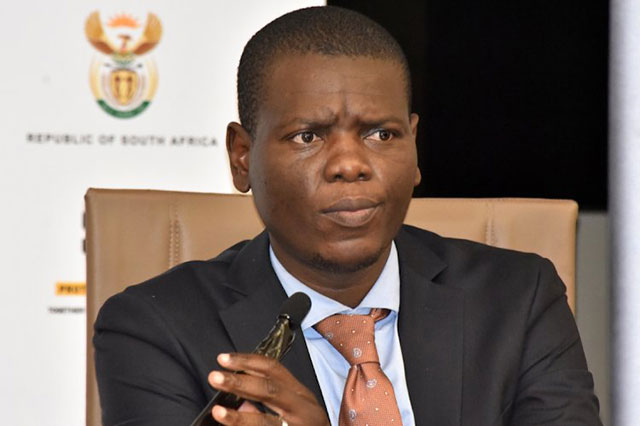Cape Town – Justice and Correctional Services Minister Ronald Lamola says South Africa is presenting a strong case in the International Court of Justice (ICJ) against Israel.
South Africa is seeking a declaration from the ICJ to immediately halt Israel’s bombardment of Gaza.
Speaking in Mpumalanga ahead of the African National Congress (ANC) preparations for its January 8th Statement next weekend, the minister emphasised the significance of taking immediate action.
“The South African legal team will be requesting from the ICJ, to issue an injunction that will enable them to stop the state of Israel to continue with the genocide, and the substantive matters will then be dealt with at a later stage. The urgent one is to stop the genocide, which is a principled position; and it’s also to ensure that we restore the respect for the rule of law…,” SABC quoted Lamola as saying.
VIDEO | South Africa presenting a robust, principled case against Israel at the International Court of Justice: Lamola https://t.co/TQ561IobQ4
— SABC News (@SABCNews) January 7, 2024
He expresses confidence in the country’s legal standing and technicalities related to the court.
“We are confident that in terms of substance, and also in terms of the technicalities related to the court, the country has got a good leg to stand on, and a case to take to the court,” he said.
The conflict between Israel and Hamas, sparked by a Hamas attack on Israel in October 2023, has resulted in over 20,000 lives lost in Palestine, with a majority being women and children.
The Department of International Relations and Co-operation last week announced that former deputy chief justice Dikgang Moseneke will join a panel of judges at the ICJ to hear South Africa’s case against Israel for alleged violations of the Genocide Convention.
The case, set to be heard next week, is focused on Israel’s actions in the Gaza Strip, particularly concerning the indiscriminate use of force and forcible removal of inhabitants.
South Africa, lacking a judge of its nationality on the ICJ bench, has invoked Article 31, paragraphs 2 and 3, of the ICJ Statute, allowing them to appoint a judge ad hoc for this specific case.
“South Africa has approached judge Dikgang Moseneke, who has agreed to join the other ICJ judges on the bench on an ad hoc basis and hear our case against Israel.
Under Article 31, paragraphs 2 & 3, of the Statute of the International Court of Justice, SA approached Justice Dikgang Moseneke, to join ICJ judges & hear SA’s case against #Israel. Prof @DireTladi4ICJ starts tenure in Feb.
LISTEN | Mr @ClaysonMonyela, Head of #PublicDiplomacy pic.twitter.com/NVbq1lcojC
— DIRCO South Africa (@DIRCO_ZA) January 5, 2024
“Under article 31, paragraphs 2 and 3, of the Statute of the International Court of Justice, a state party (South Africa) to a case before the ICJ which does not have a judge of its nationality on the bench may choose a person to sit as judge ad hoc in that specific case.
“South Africa has approached Justice Dikgang Moseneke, who has agreed to join the other ICJ judges on the bench to hear South Africa’s case against Israel,” Dirco’s head of public diplomacy Clayson Monyela said.
According to EWN, the ICJ consists of 15 judges who serve nine-year terms, elected by both the United Nations General Assembly and the Security Council.
Nonetheless, the court’s statute allows a country involved in a case before it, without a representative of its nationality on the bench, to appoint a jurist on an ad hoc basis specifically for that case.
Follow African Insider on Facebook, Twitter and Instagram
Picture: Twitter/@joy_zelda
For more African news, visit Africaninsider.com
Compiled by Betha Madhomu


